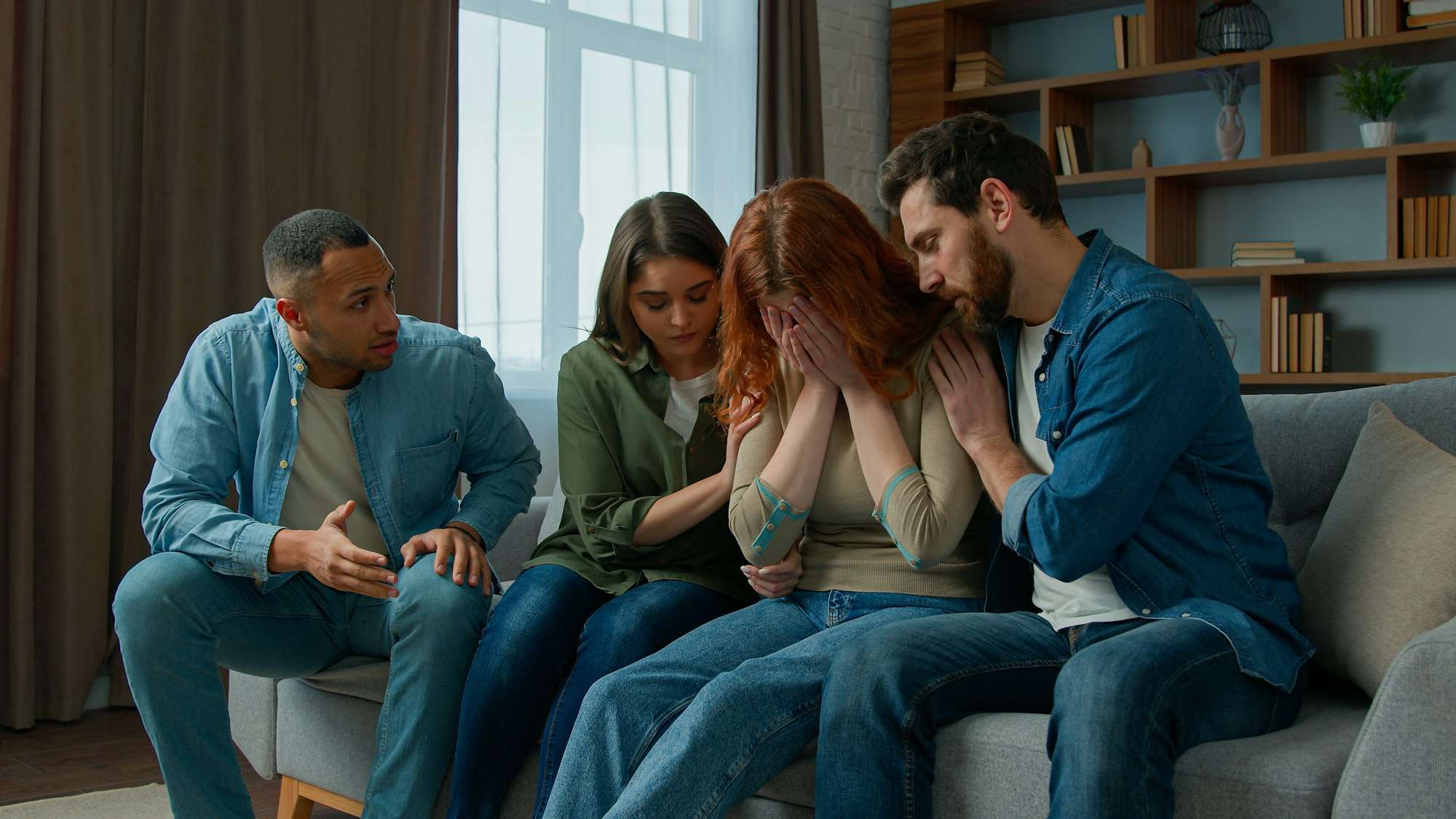Ambien withdrawal symptoms occur when you suddenly stop taking your prescription if you are dependent or addicted to it. In fact, some people don’t realize how dependent they are until they stop taking Ambien and have withdrawal. Since Ambien carries a risk of abuse and dependency, it is important to recognize the signs of addiction if you take it for insomnia.
Detox ATL offers prescription drug detox programs for those struggling with Ambien addiction. That way, you can begin your recovery from addiction safely as our professional team helps you during withdrawal.
What is Ambien?
Ambien (zolpidem) is a brand-name prescription drug that treats insomnia. While it won’t help you stay asleep throughout the night, Ambien will help you fall asleep. However, Ambien is not intended for long-term use due to the potential for misuse.
Is Ambien Addictive?
Yes, Ambien is addictive. According to the US Drug Enforcement Agency (DEA), Ambien is classified as a Schedule IV substance. This means that Ambien carries a low potential for abuse and a low risk of dependency. For this reason, doctors won’t prescribe it for long-term use.
So, despite having a lower risk of addiction than other drugs, Ambien prescriptions must be monitored by your physician. You also increase your risk of becoming addicted to Ambien if you take larger doses than prescribed or if you take Ambien with alcohol or other drugs.
Signs of Ambien addiction include the following:
- Doctor shopping, or getting multiple scripts for Ambien from different doctors
- Taking more Ambien than prescribed
- Mixing Ambien with other drugs or alcohol
- Disorientation or problems with memory
- Cravings for Ambien
- Withdrawing from friends and family
- Loss of interest in hobbies and activities
- Unable to stop abusing Ambien without professional help
In addition, if you stop taking Ambien and then have withdrawal symptoms, you have an addiction or dependency.
What Are Ambien Withdrawal Symptoms?
Withdrawal symptoms are unpleasant, distressing, and sometimes dangerous symptoms that occur when you stop taking a substance you are addicted to or dependent on. Oftentimes, people will relapse in early recovery from addiction because they cannot handle withdrawal symptoms.
Ambien withdrawal symptoms include the following:
- Anxiety and panic attacks
- Insomnia
- Tremors
- Increased heart rate
- Rapid breathing
- Sweating
- Fatigue
- Nausea or vomiting
- Hallucinations
- Mental confusion
- Uncontrollable crying
- Feeling lightheaded
- Seizures
The severity of your symptoms depends on factors unique to you and your level of addiction. For instance, if you take excessive amounts of Ambien along with drugs or alcohol, you are at a high risk of severe withdrawal symptoms when you suddenly quit. That is why it’s important to discuss any medication issues—including prescription drug abuse—with your doctor.
In addition, Ambien withdrawal symptoms can last different amounts of time for each person.
What is the Ambien Withdrawal Timeline?
Since Ambien is a fast-acting prescription drug, you will start to have withdrawal symptoms within a few hours of quitting. After that, your symptoms will peak in severity within about one to five days. Most people will no longer have symptoms within about one to two weeks.
However, it is important to note that since Ambien treats insomnia, you could have recurrent symptoms when you stop taking Ambien. So, you must talk to your doctor about any concerns over Ambien addiction to explore alternatives. Otherwise, you could find yourself going back to Ambien or other drugs when your insomnia returns.
How is Ambien Addiction Treated?
Ambien addiction is first treated with a drug detox program. During detox, you get professional medical and psychological help to manage Ambien withdrawal symptoms. This helps you start your treatment program safely and lowers the risk of relapsing in early recovery.
After detox, it is important to continue treatment in a residential treatment center or inpatient facility. While detox is a critical first step, you won’t get a chance to uncover the underlying causes of your addiction. During residential treatment, you live in the treatment center throughout your program. Most residential programs last between one month and 90 days.
Once you finish residential treatment, you can move on to an outpatient program. It is best to begin at a high level of care and then gradually step down. Most people begin outpatient treatment at a day program or partial hospitalization program (PHP) and then move on to an intensive outpatient program (IOP).
Furthermore, you can also continue residential services during outpatient treatment if you don’t have a safe and secure home environment that is conducive to recovery. Many people choose to live in a sober living home during outpatient treatment. This allows them to live among peers in recovery and increases accountability for living a drug-free life.
Find Help for Ambien Addiction Today
Ambien is a fast-acting, short-term prescription drug for insomnia. However, you could become dependent on Ambien if you misuse your prescription. In some cases, people get addicted to Ambien due to some of the pleasurable and relaxing side effects of the drug.
But you can quit your addiction to Ambien for good. Detox ATL offers drug and alcohol detox programs in Atlanta, Georgia. We help you safely begin your treatment and recovery from addiction.
Contact us today to learn more about our Ambien detox programs.






